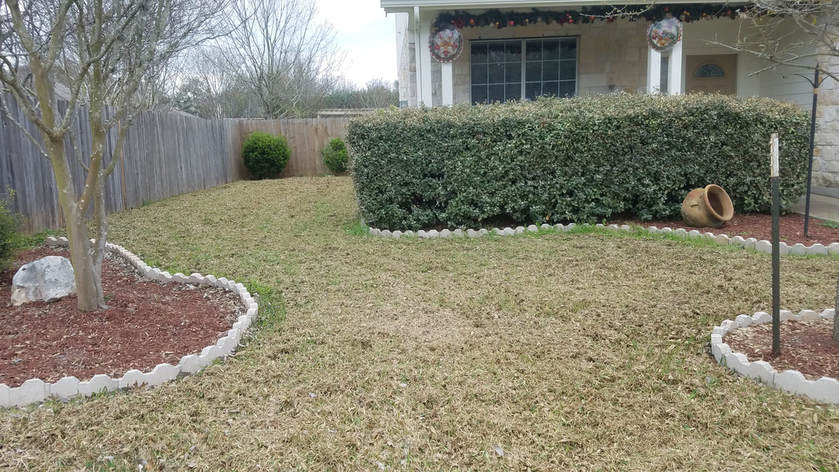|
Now updated to the most current science in 2023!
Debunking the MythContrary to popular belief, mulching the lawn or otherwise leaving grass clippings or leaves on the lawn will NOT increase the thatch layer. Grass clippings and leaves are made up mostly of water and nutrients that can easily be absorbed by the lawn. According to University of Minnesota Extension, "grass clippings decompose rapidly and contribute very little to thatch accumulation." When it comes to leaving leaves on the lawn, Virginia Tech and Virginia State University says, "Mulching the leaves had no undesirable effects on turf quality or color, growth, thatch accumulation, soil pH, weed populations, or disease pressure. While the leaves did not prove to be a substitute for appropriate N fertilization practices, the general assessment was that mulching was overall very positive and economical."Thatch Build-upExcessive thatch build up happens when the lawn produces more organic debris much faster than can be decomposed. According to Penn State University, "parts of grass plants that are the most resistant to decay — stem nodes, crowns, fibers of vascular tissues, and roots — make up the bulk of thatch." Mowing infrequently will contribute to thatch build up. This is because a significant amount of stem tissue gets cut off. As time passes by mowing one overgrown lawn after another, thatch layer naturally thickens as more and more stem nodes, crowns, fibers, and roots collect underneath the lawn. This is the reason why dethatching exists.
Thatch ManagementThatch Management calls for regular lawn maintenance, more frequent and regular weekly mowing, even when you think the grass has not grown yet. This limits the length of the grass to be cut and lowers the amount of organic matters resistant to decay. Mowing higher is also preferred to keep the grass lush and thick. Aerate and Top Dress regularly in Spring to reduce the need for synthetic fertilizer. Avoid the use of high yielding Nitrogen synthetic fertilizer because synthetic nitrates simply kill too many soil microbial life. To get a greener look earlier into the growing season, add Iron instead of Nitrogen. Do not deep water lawns that are compacted. When the root system is restricted, there is no added benefit to watering deeply. Excessive moisture in the soil can simply become a paradise for fungal growth that may eat away the lawns' root system. As the lawn thickens and recovers, you may gradually increase watering intervals and increase the amount of water at every watering time. Reducing the watering time may be needed for lawns with slopes and hills to lessen water runoff and top soil erosion.THE UPDATE New to 2023, the use of Actively Aerated Compost Tea in Thatch ManagementIncorporating actively aerated compost tea into your lawn care regimen offers numerous benefits. Compost tea is a nutrient-rich liquid produced by steeping compost in aerated water. Applying compost tea to dethatched lawns can:
We hope that our little blog post helps you in understanding more about dethatching and thatch. Should you need help with your lawn, please do not hesitate to contact us. We are very eager to help.
50K Professional Lawn Services LLC. 844-505-5296. Austin, Texas.
3 Comments
1/10/2019 12:05:36 pm
That's good to know that having thatch that is more than 1" thick shows that the microorganisms are having a hard time decomposing the lawn which is when you should use power raking, bagged mowing, and core aeration. My lawn seems to not to be doing well which is why I'm trying to look up what the dead stuff on top is. That's good to know that it may be thatch, so I'll have to find a company that can perform all services on my lawn to ensure that it's healthy and decomposes properly.
Reply
4/28/2024 11:02:17 pm
Thanks for taking the time to publish this helpful information!
Reply
Leave a Reply. |
Call or Text |
